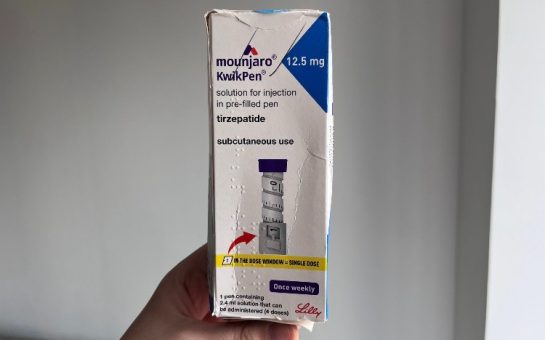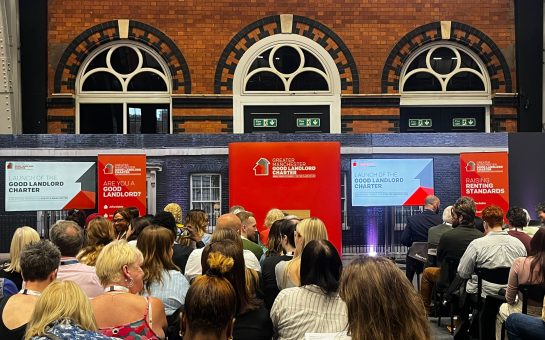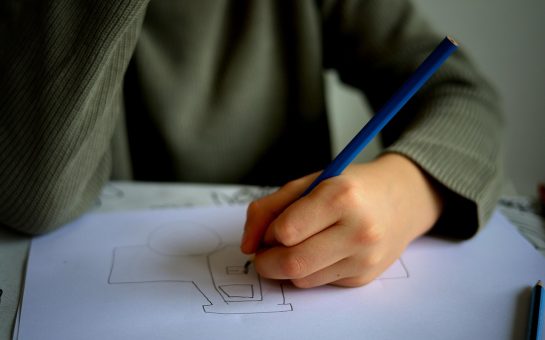As part of the year-long programme Celebrating Women in Global Cinema, HOME ran a season this May focusing on women’s activism and involvement in trade unionism: Women, Organise!
Not only a celebration of women in film, the season shone a light on the role of women in the workplace, and specifically women’s experiences of particular campaigns in history.
They ran a huge variety of films, fiction, documentary and shorts, and sparked discussion with introductions and Q&As.
MM talked to Head of Film at HOME, Rachel Hayward, about why they chose to put on this overtly political season.
The season was following on from previous work that looks at political activism and left-leaning or challenging films.
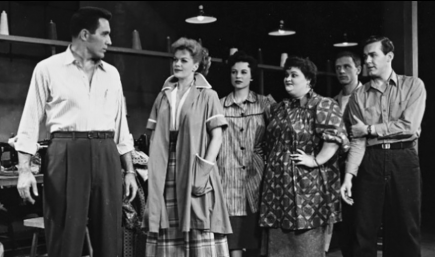
POLITICALLY CHARGED: The late great Doris Day is featured in The Pajama Game
“It’s political stuff, things that really engage people with current debates,” she said.
“There’s a lot to learn from archive films, there’s a lot to see, and to tease out and to pull things that are really similar to now that we can act on and learn about. But there’s also things to challenge when we look back at things.”
The season wasn’t all hard-line political documentaries, but every film screened was chosen to complement the programme and encourage debate.
Preceding the sad news this week, the Doris Day musical The Pajama Game featured.
“It’s a really bizarre film in the musical canon because it was made at such a politically charged time, when you would not expect a film about unions to be made within the Hollywood star system,” said Rachel.
A Feeling Greater than Love
To be in-keeping with the year-long programme, international films were also expected and chosen well.
A Feeling Greater than Love is a documentary that tells the story of a Lebanese factory strike in the 1970s before the civil war. The screening was introduced by Molly Geidel, Lecturer in 20th Century US Cultural History at the University of Manchester.
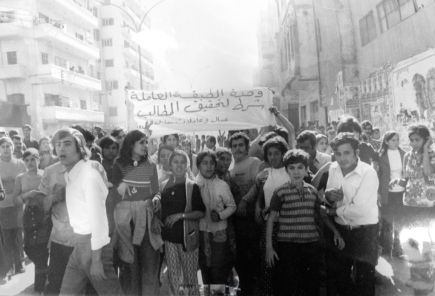
‘WOMEN’S BRAVERY’: Female participation in the Lebanese left’s work protests made a huge difference
Invited because of her personal connection with the film-maker, having that direct speech from an activist who has a connection with the topic greatly added to the experience.
MM caught up with Molly to ask her about her take on the film.
“I think the film’s argument, backed up by the testimony of the participants, is that the left in Lebanon needed the full participation of women to win out over the bosses and sectarian forces they were trying to overcome,” she said.
“I think Mary was trying to show us a historical moment that’s not very well remembered, and to give us a sense of both the bravery of the participants and the excitement of being in spaces where you’re fighting for justice for a group rather than just struggling to survive on your own.
“She is looking back at these struggles in a later moment and trying to figure out what present-day protest movements in Lebanon and beyond can learn from their successes and failures,” Molly told us.
The Nightcleaners
Berwick Street Film Collective’s The Nightcleaners was another of the documentaries featured during the season.
With less documentary drive and a more artist film feel, Rachel said: “It’s a film that engages people on many different levels.”
The film experiments with sound and picture and manages to form a window into the lives of the women who cleaned office blocks at night in the early seventies in London.
Working 10pm till 8am every night and looking after households and families during the day, meant many of these women did not sleep, and were bringing home only £12 at the end of the week.
The film explores their victimisation and struggle to unionise.
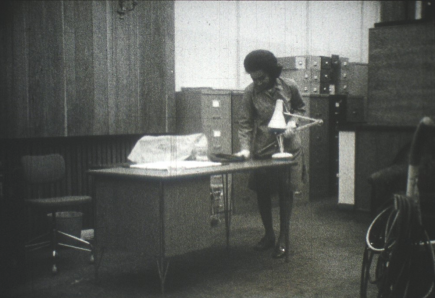
VICTIMISATION: Women cleaners in the 1970s took home only £12 a week and were forced to work 10pm-8am every night
What was Women, Organise! trying to achieve?
Molly summed it up perfectly. Both these documentaries and the season as a whole were trying “to uncover a feminist story about the importance of women’s participation in social struggle.”
It did so superbly.
What’s next?
The next Celebrating Women season is looking at pop-stars.
“Through celebrating women we are looking at underrepresented voices across the board and that might be self-identifying women, trans women, older women, people of colour, the whole range and so we are making sure we’ve got lots of different voices in there,” said Rachel.
In September, there will be a major showcase of Indian independent film work as part of Celebrating Women in Global Cinema.that promises to be another interesting programme.
https://homemcr.org/event/celebrating-women-global-cinema/
